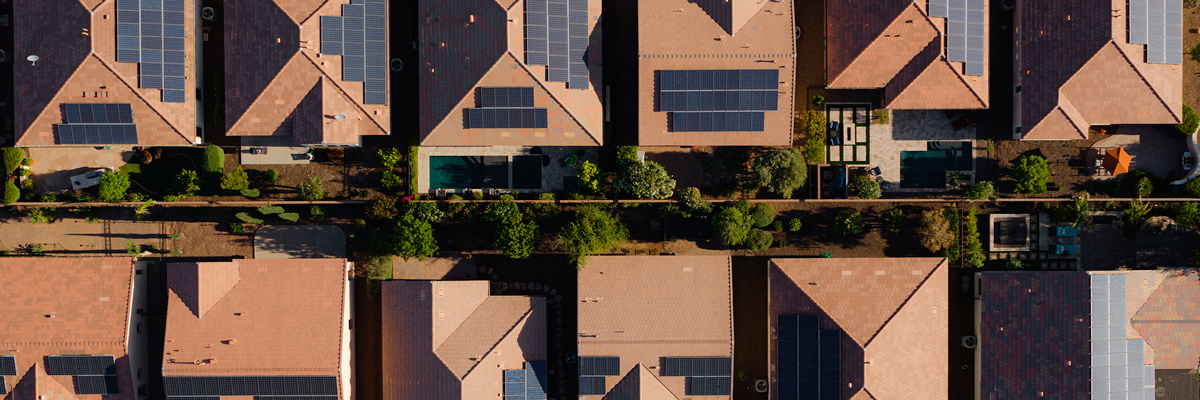
Rooftop solar for homeowners
If you’re considering installing solar panels at home, there are some important things you should know before taking the next step.
On this page:
Is rooftop solar right for you?
Rooftop solar has many great benefits, but you’ll want to ensure it meets your needs and makes sense for your home. Explore the steps below to see if rooftop solar might be right for you.
Step 1: Review your bill |
|
Step 2: Evaluate your property |
|
Step 3: See if you qualify for tax credits |
|
Step 4: Get an estimate |
Key considerations
Solar power can be a complicated and confusing subject, but it doesn’t have to be. Explore the topics below to learn about the most important things to know before signing a contract.
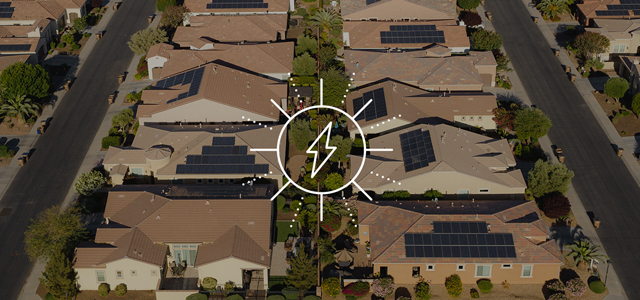
Rooftop solar 101
Understanding how solar energy and battery storage work is essential to making the most out of your system. Read our guide to learn more.
Read our solar guide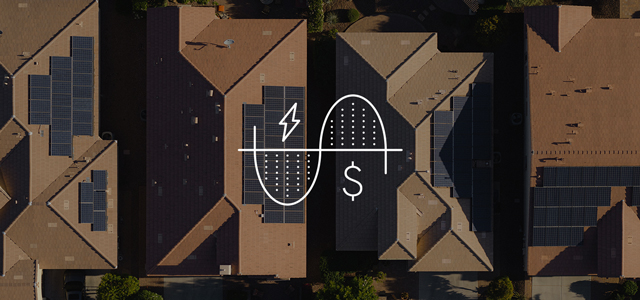
Energy and demand
Demand is the amount of power your home uses at any given point in time. SRP's demand charges are based on 30-minute intervals during on-peak hours.
Learn more about demand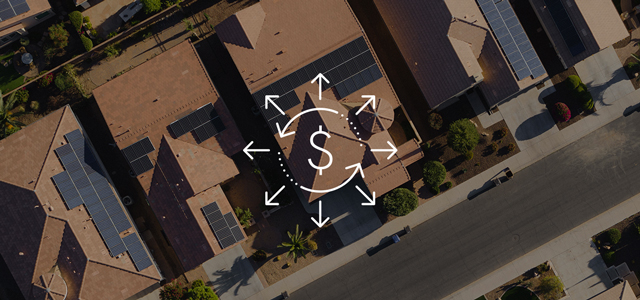
Solar price plans
You can offset your electric costs by generating some of your own power using solar panels, but you’ll also use power from SRP’s grid when you need more energy than your panels generate. Explore our price plans to find the best fit for your lifestyle.
Compare price plans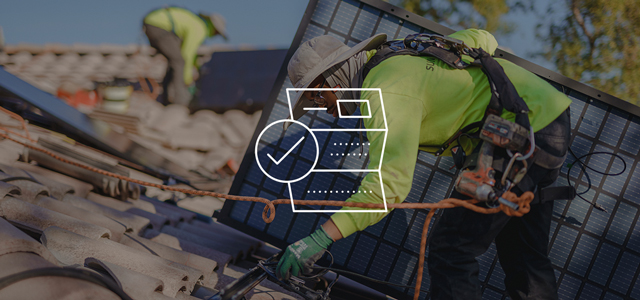
Smart solar shopping tips
It’s critical to know that some solar salespeople don’t have your best interests in mind. Explore our guide to smart solar shopping to make informed choices and ensure you’re aware of common red flags and false promises.
Explore solar shopping tips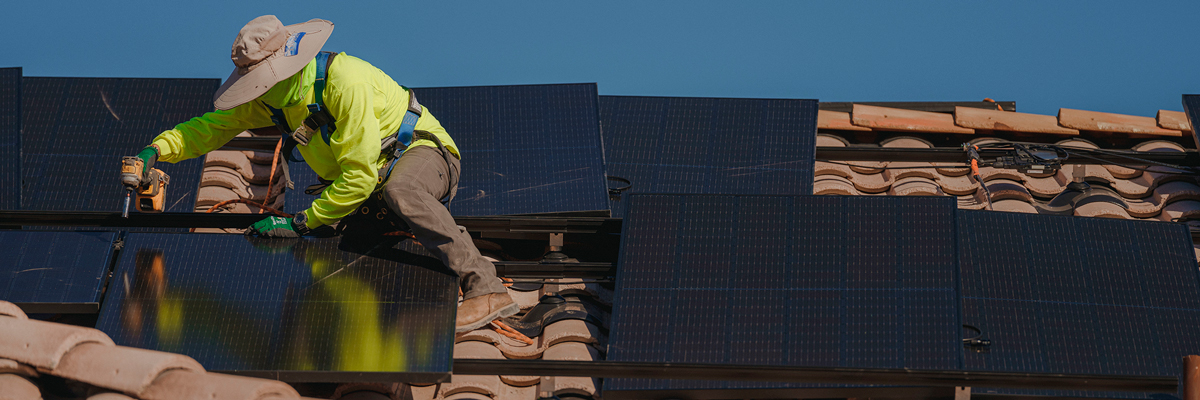
Preferred Solar Installer Program
Working with a qualified solar contractor is extremely important. We can put you in touch with trusted local providers who are part of our Preferred Solar Installer program. SRP Preferred Solar Installers are licensed, bonded, insured and trained to work with our solar plans. They can design your system, offer financing options, provide a safe connection to the grid and train you on how to operate and troubleshoot your new solar panels.
What qualifications do SRP Preferred Solar Installers have?
All SRP Preferred Solar Installers:
- Hold an active solar license granted by the Arizona Registrar of Contractors
.
- Have been in business for at least 24 months under the same business license, same leadership and same corporate name.
- Maintain a Better Business Bureau (BBB)
rating of "A" or higher with no outstanding complaints with the BBB.
- Have been trained on SRP's solar price plans.
Rebates and tax credits
While SRP no longer offers incentives for solar installations now that the market has matured, you may be able to qualify for rebates, discounts and tax credits that can help you save money while harnessing the power of renewable energy.
Demand Management System Rebate
Get $250 when you purchase and install a rooftop demand management system from a Preferred Solar Installer.
Learn moreSolar tax credits
There are a variety of financial incentives available to help you invest in solar technology for your home.
Learn moreInvesting in renewable solar energy
While rooftop solar benefits individual homes and businesses, SRP is committed to investing in solar energy on a large scale. Utility-scale solar energy is produced in a commercial facility, like a solar farm, and it can be shared with customers across the Valley – even those who don’t have solar panels. Learn more.
Frequently asked questions
Yes. On the Customer Generation and Average Demand price plans, if the energy produced by your solar system is greater than the energy you used during the billing cycle, then the excess energy will be credited to your bill. You'll get back the same value you would have paid for that energy had you purchased it from SRP. On the TOU Export and EV Export price plans, if the energy produced by your solar system is fed back to the grid at any time, SRP will credit you at a fixed export rate of $0.0281 per kWh and subtract it from your bill.
On the TOU Export and EV Export price plans, excess solar generation cannot be carried over. On the Customer Generation and Average Demand price plans, excess generation can be "banked" during the billing month. Any unused excess energy will be credited at the end of the billing cycle at the retail rate.
Solar customers pay a slightly higher monthly service charge than non-solar customers. Customers with systems of 200 amps or under pay a monthly service fee of $32.44, and customers with systems over 200 amps are charged a monthly service fee of $45.44. This helps SRP recover fixed costs to support grid capacity. If you’re on a demand price plan, you’ll also pay a demand charge.
Yes, through the SRP Solar Choice™ program, customers who don’t have solar panels can offset their energy use with power from Arizona solar farms. This plan costs just half a cent more per kWh on top of your current price plan.
You can earn money by offsetting your electric bill, using only the energy generated from your system or generating excess energy that will be credited to your bill at a fixed rate of 2.81 cents per kWh.
SRP does not sell or install solar or DER system components, but we do have a list of trusted local providers through our Preferred Solar Installer program. If a company claims to partner with SRP, call (602) 889-2657 to make sure they’re on our approved list. We’re available from 7 a.m. to 6 p.m. seven days a week. You can also email us at srpinfo@elaz.org. We also suggest checking out our smart solar shopping tips page to make sure you’re aware of common misinformation and red flags when shopping for solar.
A variety of state and federal incentives are available to help Arizonans invest in solar technologies. The current federal residential solar energy credit offers:
- 30% tax credit for systems installed between 2022 and 2032
- 26% tax credit for systems installed in 2033
- 22% for systems installed in 2034 (Energy.gov
)
For other rebates, search the Database of State Incentives for Renewables & Efficiency®. To see if you qualify for these credits, consult a tax professional.
- Once we receive the Program Application, we review it for completion and notify the installer of any issues in a timely manner.
- We then prepare a Distribution Interconnection Agreement (IA) and send it to the property owner for their electronic signature.
- Then we create an order on the customer’s account to track the design review phase of the process. Once this order is created, the project will be assigned to an SRP design consultant.
- If the service entrance section (SES) will be upgraded, the installer must contact SRP Construction at (602) 236-0777 to schedule the appointment before the solar design will be reviewed.
- Upon receiving approval to proceed from our design consultant and obtaining all applicable building permits, the Installer may proceed with installing the Distributed Energy Resource (DER) Facility.
- Upon completing installation of the DER Facility, the Installer must contact the appropriate authority having jurisdiction (AHJ) to inspect the facility. The AHJ must submit a City Clearance (CC) to SRP indicating that the DER Facility has passed inspection.
- If the AHJ does not permit the work at the SES prior to DER installation, the Installer must provide a Certificate In-lieu of Electrical Clearance (CILC) in advance before SRP inspection and re-energization.
- Once the DER Facility has received CC/CILC and SRP has received the IA signed by the Customer, the Installer can request to schedule the SRP inspection.
- Upon successful completion of the Final Inspection, SRP will install new SRP meters.
- If the facility fails inspection, an email will be sent to the Installer with a description of the reasons for the failure.
- The DER Facility must be energized within 24 hours of the passed inspection by the Installer or the Customer.
For more detailed information, check out our Residential Distributed Energy Resource Process Flow.